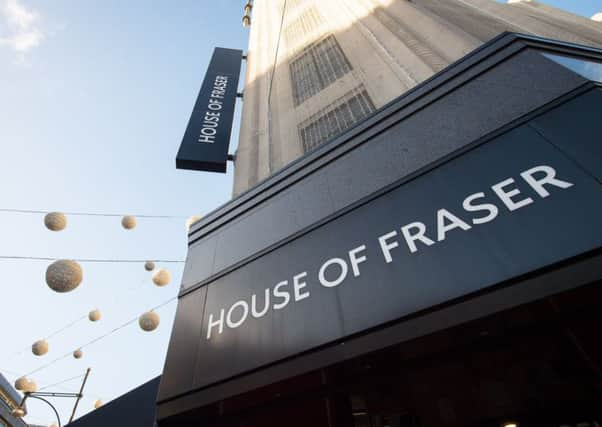Leader comment: High St revolution will affect us all


There are those who insist reports about the death of the high street have been greatly exaggerated.
However, this year’s grim toll of bad news presents a significant challenge to the idea that rise of online retailers will not fundamentally change our cities. Toys R US and Maplin went into administration, New Look announced it was to close 60 stores, Carpetright 92 stores, Prezzo 94, Mothercare 50 and Marks and Spencer more than 100, among others. Now iconic department store House of Fraser has added to this list, saying it expects to shut 31 stores.
Advertisement
Hide AdAdvertisement
Hide AdThe loss of such retail ‘anchors’ may have a knock-on effect on smaller businesses nearby, helping to tip Britain closer towards a full-blown revolution. It is one that a surprisingly high number of people do not want. A survey of 1,000 people by Atomik Research found 48 per cent would rather visit a shop, compared to 20 per cent who preferred online. But while we might like the idea of shops, the number of closures suggests we settle for their virtual rivals’ convenience.
We may be deluding ourselves on that point. How many times have you had to traipse to an out-of-the-way depot to collect an undelivered parcel? How many times have you settled for something that wasn’t quite the right size or not exactly what you ordered simply to avoid the hassle of sending it back?
But, even so, the trend seems fairly clear. The beating hearts of our communities is to be ripped out and, hopefully, replaced by something else. The current thinking seems to be that city centres will become places where we meet to socialise, rather than to buy things. Sensible management of such a transition will be needed as too rapid a rate of store closures and too many job losses could lead to societal problems.
However, the removal of a key link in the supply chain also represents an opportunity for enterprising businesses. Farmers, long the victims of supermarkets’ economic muscle, have provided an early example of what can be achieved, setting up shops – both real and online – to sell their goods directly to the public.
Other small firms should be looking to find their niche – in a global market, it could turn out to be huge. The alternative may end up being to sell through Amazon, a still-growing behemoth whose power already eclipses every other retailer on the planet.
